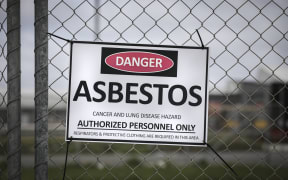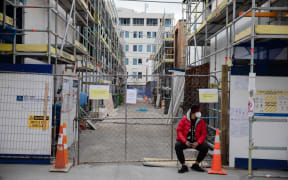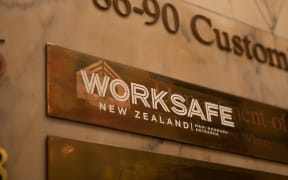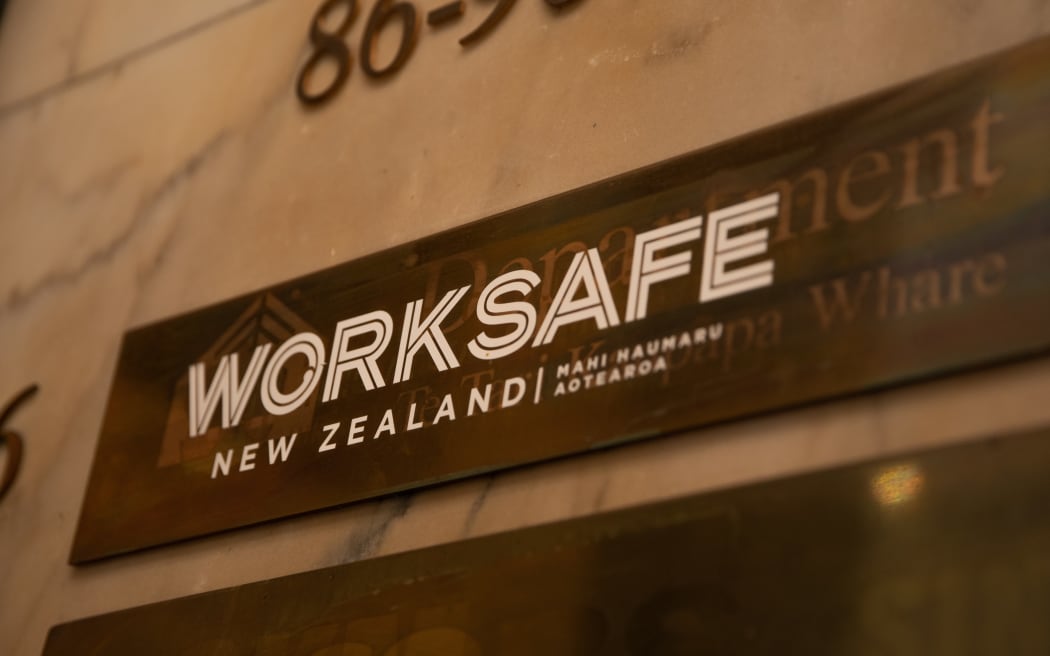
File picture. Photo: RNZ / Samuel Rillstone
WorkSafe is accused of turning a blind eye to two companies found to be illegally storing potentially catastrophic amounts of explosive substances.
The two firms were found to be non-compliant by hazardous substances experts at Dangerous Goods Compliance (DGC) earlier this year. It alerted WorkSafe, but the health and safety regulator took nearly a month to inspect each business.
The first site, in the Bay of Plenty, was storing so many LPG cylinders inside its warehouse in breach of the rules that the compliance inspector dubbed it "onshore Whakaari" due to its explosive potential, DGC owner James Dunphy said.
It took WorkSafe more than three weeks to visit.
Separately, it took WorkSafe a month to inspect a Waikato manufacturer and retailer that DGC found had been storing flammable substances in containers 10 times the legal size allowed, and did not have a compliance certificate, fireproof storage or fire extinguishers.
Dangerous Goods Compliance inspects and issues compliance certificates to businesses using and storing hazardous substances. Its certifiers are authorised to carry out the work by WorkSafe New Zealand.
Dunphy said both assessments were carried out by senior and very experienced certifiers. DGC notified WorkSafe immediately of its decision not to issue either company a compliance certificate, as required by law.
It was not good enough that it took WorkSafe a month to visit the Waikato business and more than three weeks to inspect the Bay of Plenty property in person, Dunphy said.
The Waikato business was assessed by DGC on 23 August, on the request of a landlord who became concerned at the amount of flammable and corrosive chemicals her tenant was storing on the property.
DGC's inspection report, seen by RNZ, found flammable liquids being stored in containers 10 times the legally allowed maximum storage size.
"We found excessive quantities of flammable liquids like ethanol and corrosive acids. There was a whole series of other material compliance issues that really created a very significant fire risk on the premises," Dunphy said.
By law, flammable liquids kept on a commercial premises must be limited in quantity, stored in fireproof cabinets and businesses must be certified to store and use the chemicals. This business failed on those counts, Dunphy said.
"It was of very significant concern and a fire risk waiting to happen."
Despite carrying large quantities of flammable and corrosive materials, the business did not have a hazardous substances location compliance certificate as the law required.
The landlord, who did not want to be identified, said she rang WorkSafe immediately after receiving DGC's assessment to tell them about the dangerous situation on her property, which also potentially could void her insurance.
"WorkSafe told me they could not send anyone to inspect the business for at least a month.
"I said: 'Well, I think it needs looking at, you know, faster than that,' and he said 'we're like everyone else, we're run off our feet'."
The landlord said WorkSafe's response was especially concerning given there were several staff onsite and a retail shop open to the public.
WorkSafe inspected the property on 21 September.
When asked about the delay, WorkSafe said it understood DGC was working with the company to resolve the issues identified.
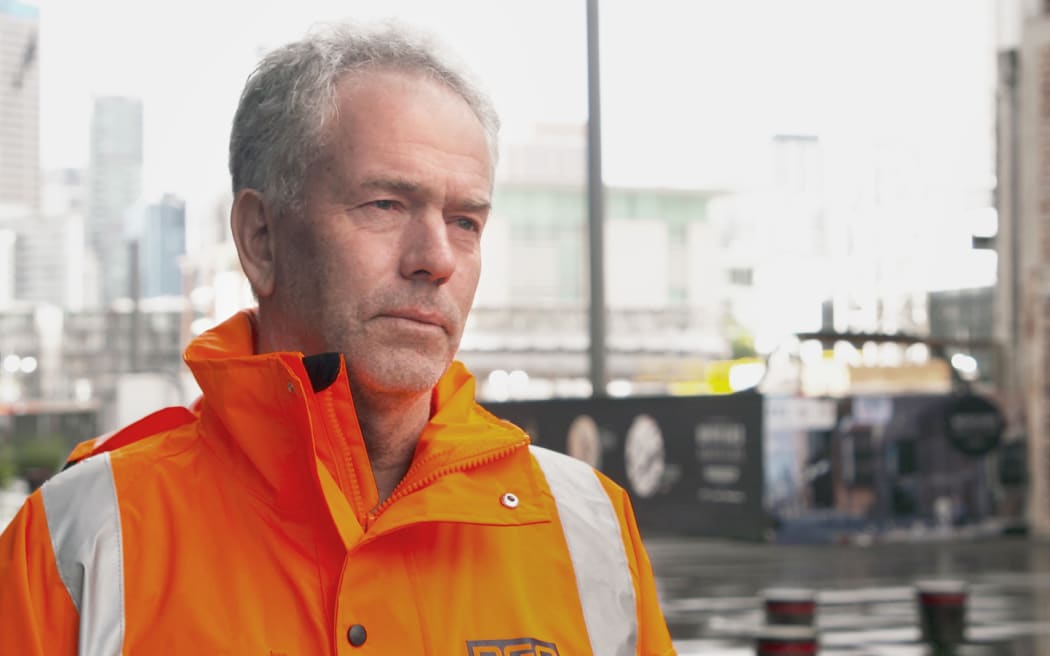
Dangerous Goods Compliance owner James Dunphy says WorkSafe should be acting more quickly in such cases to prevent a catastrophic event from occurring. Photo: RNZ / Nick Monro
But Dunphy said WorkSafe had made a wrong assumption. DGC had been employed by the landlord, not the tenant.
"Our legal responsibility was to report our findings back to the landlord who commissioned the report.
WorkSafe said the business still did not have a compliance certificate, but had issued a "directive letter" requiring it to engage a certifier and get a certificate.
"Further enforcement action may be taken if the PCBU [Person Conducting a Business or Undertaking] does not comply."
The landlord had since evicted the tenant from her property.
It was not the first time WorkSafe had failed to take timely action on potentially dangerous situations, Dunphy said.
In February, one of his certifiers alerted WorkSafe to a Bay of Plenty business he dubbed "onshore Whakaari" after discovering it was illegally storing dozens of LPG cylinders inside its premises. Several other non-compliance issues were also identified.
"We had 1500kg-potential of LPG inside a building that were at various stages of venting naturally into the atmosphere. So we had a colossal potential explosion risk," Dunphy said.
DGC refused to issue a compliance certificate to the business and alerted WorkSafe, as required by law.
Documents released to RNZ under the Official Information Act showed that by the time WorkSafe carried out an inspection of the premises in-person on 14 March, all the gas cylinders in the workshop had been purged and the electrics placed out of the two-metre "hazard zone", as required by law.
A WorkSafe hazardous substances inspector again visited the site in June and reported minor compliance issues.
WorkSafe declined to be interviewed but in a statement said the company had since met the requirements to obtain certification from a different certifier.
When asked why it took so long to inspect the site, it told RNZ that DGC was engaged to help the company.
"Compliance certifiers authorised under the third-party regime have the skills and expertise to identify issues and work with the PCBU to bring them into compliance, where those issues are able to be fixed promptly.
"As a result WorkSafe should not need to assess every site where a compliance certifier raises an issue. Depending on circumstances WorkSafe may become involved when a compliance certifier raises concerns about a site or PCBU which aren't easily resolved."
But Dunphy said this was incorrect.
"We told them politely we would never certify the site because there were so many issues. And we told WorkSafe this. We have no legal responsibility to ensure it does.
"The only entity with power to do that is WorkSafe."
Dunphy said WorkSafe should be acting more quickly in such cases to prevent a catastrophic event from occurring and also reduce the number of people dying from workplace illnesses caused by hazardous substances.
"WorkSafe's own data tells us that three times as many people killed on New Zealand roads each year are dying from the inhalation or the ingestion of fumes from hazardous substances. Think about it as inhaling a solvent, and then eventually suffering from cancer.
"On top of that, we have the dreadful risk that we will have another massive event, like Pike River or Whakaari Island. I have significant worries that the ineffective regulator is actually going to be contributing to a situation that they have the legal responsibility to prevent."
Workplace exposure to hazardous substances is estimated to cause the premature deaths of between 600 to 900 New Zealanders each year.
About 150,000 workplaces throughout New Zealand use hazardous substances.

